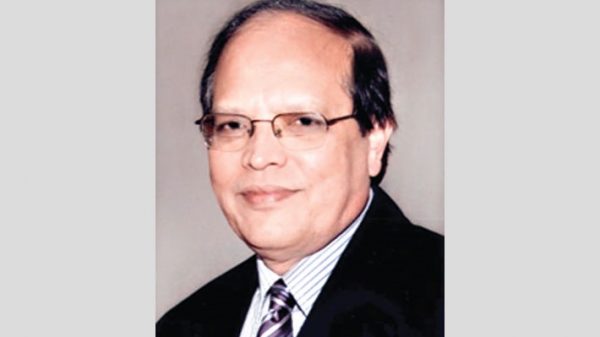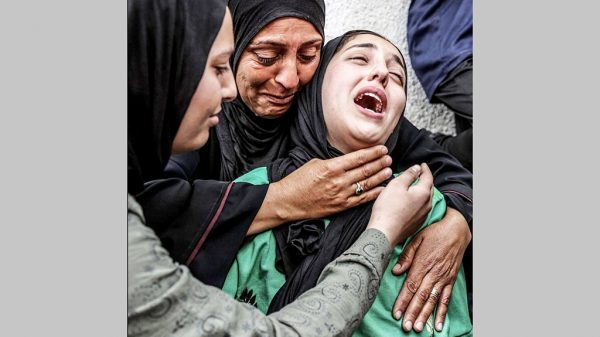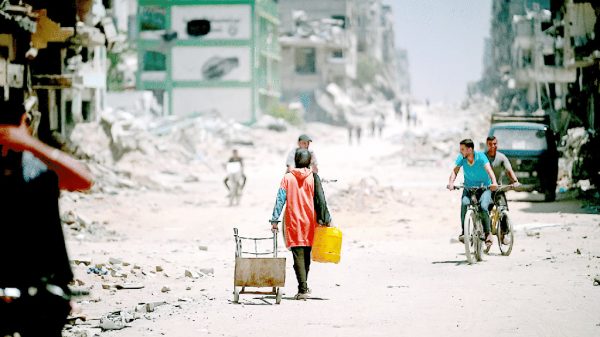He was happy with people’s love and affection

Dr. Atiur Rahman:
The Prison Diaries of Bangabandhu Sheikh Mujibur Rahman reveals vividly how much he had to sacrifice during his entire political career for the struggling people of Bangladesh. It is indeed difficult for a reader to hold back tears while reading this book. The editor of this book Sheikh Hasina aptly writes about how much pain he had to endure year after year during the prime time of life for the sake of his people. She says, “Rehana, Baby Moudud and I would often work on the book with tear-filled eyes… All of us who worked on the project could not restrain ourselves from shedding tears.” (Sheikh Mujibur Rahman, The Prison Diaries, Bangla Academy, 2018, p. XX11).
He was put behind the bars on and off, at times unjustly as many of the lawsuits were just made-up. The only intention of the then administration was to push him into the corner so that he got tired of his tirade against the ruling political clique. But Sheikh Mujib was of different mettle. He could endure all the hardships and undue pressures of the authorities and continued his political journey as he was deeply committed to his mission for the people’s freedom. And for all this, he and his family had to pay the heavy price of prolonged isolation.
So, Sheikh Mujib eagerly looked forward to meeting his family during his time in prison. He even reminded the intelligence branch (IB) official who came to meet him that he was entitled to meet his family members twice a month. But even when he met his family, IB officers accompanied him. It had really bothered Sheikh Mujib since he would not discuss politics with his family members. (ibid, p.187) Regarding one such family visit, he humorously wrote, “My youngest son whispered something in my ear.
He is twenty-one months old now. I said, “If you whisper in my ears, the IB is going to be displeased; he will surmise that we’ve been whispering about political matters. Everyone present laughed.” (ibid. p.195) He worried about his parents often. He became sad after receiving a letter from his father who was not doing well with his health. He consoled himself and thought about Rabindranath’s lines: “To save me when I’m besieged by trouble, Is not what I pray for; What I pray for is not be frightened, When I’m in trouble.” (ibid. 185) He wrote further, “I know that I have a lot of sorrow ahead of me in this life; I’ve been preparing myself for them. But what grieves me the most is the thoughts of my old parents when their images float in my mind’s eye.” (ibid. p.178) Indeed, he was very close to his parents and missed them a lot when he felt lonely in prison.
However, he was loved by the people around him even in prison. This kept his spirit high despite loneliness. His guard sent him lemons that he got from his village. Sheikh Mujib was very grateful to the guard for his gesture (ibid. p.193). On an Eid day, other prisoners had sent food for him. His wife had also sent him enough food. Sheikh Mujib invited other prisoners to share the food and eat together. (ibid. p.211) He turned 47 years old while he was still in prison. When he found out from the newspaper that the Dhaka City Awami League observed his birthday, it made him happy. Many of his political colleagues detained in the nearby cell also sent him flowers as birthday gifts and he was very happy about their good wishes. He was, however, eagerly waiting for his wife and children to visit him. He was not sure if they got permission for this visit. But at about five in the afternoon, they came with flowers and cakes. They brought two cakes with them. (ibid. p.219 and 220) He cut the cake with his youngest son Russel and sent a piece to his nephew Moni, who was not allowed to meet him despite staying in the same prison. He also cooked ‘khichuri’ for his colleagues after his wife had sent him ingredients. (ibid. p.248)
Sheikh Mujib went through many pains in prison. He would often fall sick. For instance, he suffered from intense pain in his spine on 28th and 29th July 1966. (ibid. p.189) He also got headaches very often. (ibid., p. 122 and 236) The room he was kept in leaked whenever it rained and it was very difficult for him to live in that awful condition. (ibid. p.203) His privileged position as a political prisoner was also taken away and he was given a ‘first class’ status. As a result, his allowance was reduced and it made him sad that he would not be able to share food with his attendants like he used to. (ibid. p.243) In addition to this, he was kept isolated from all others and had to spend most of his time alone. He once got very sick during May 1967 and a Civil Surgeon had visited him. Sheikh Mujib was disappointed at his own predicament. He wrote, “I told the Civil Surgeon and the prison physician to make arrangements so that I could be treated properly. I won’t bow my head to these torturers, if need be, I’ll die in this very prison. One can’t have sin and piety existing side by side. If I am destined to die in prison, let it be so! I’ll have to die sooner or later in any case. When it is evening, I’m locked in and at dawn, they unlock the door. How can I keep well under such a disposition?” (ibid. p.259)
He had endured all the hardship for the Bengal he loved so much. Mujib wrote, “…I feel like leaving this path altogether; but how can I bear such injustice in silence? My conscience keeps pricking me. I am getting old and my health continues to deteriorate. Will I be able to stay healthy? I console myself thinking: how long do I have to live in any case? Let things go on as they are. Even if I’m not able to do anything more, that I’ve been able to sacrifice at least a few things for them must serve as consolation for me.” (ibid. p.191) He was not at all hankering for power. He took on pain and humiliation just for the good of his people. He made this clear after winning a landslide victory in the national election in December 1970, which made him a natural claimant to the position of the Prime Minister of Pakistan. But he was not so keen on it. He was more interested in the freedom of the people who suffered from all the injustices imposed on them by the Pakistani ruling elites. That is why he spoke so candidly on January 3, 1971, in the Racecourse Ground where two million plus people gathered to celebrate the electoral victory and take a vow to implement the 6-points programme. On that day he opened his heart and said, “I have no desire to be Prime Minister. Prime Ministers come and go. But I will always reckon the endearment and reverence people have given to me. I am not even afraid of persecution and the solitary confinement of the tenebrous prison. But the affection of people has weakened me.”
The writer is a former Governor of Bangladesh Bank and an honorary Professor of Development Studies and as well as Bangabandhu Chair Professor, University of Dhaka. He can be reached at: dratiur@gmail.com




























Leave a Reply